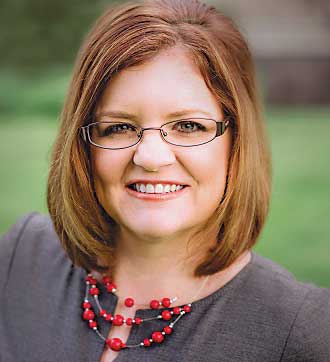A married couple who owned a business called me to investigate some curious items found on their company’s bank statements. There was a DISH Network bill paid through their account, but they didn’t have DISH Network as their cable TV provider. When they called the company to ask whose account it was, they were given the name of their bookkeeper. They dug a little further and noticed that each month there was a Verizon Wireless bill being charged to them, even though both of them used AT&T.
Finally, they confronted their beloved bookkeeper, Sienna. A woman in her mid-20s, Sienna had worked for them since graduating high school, eventually working her way up in the company to managing the office. Sienna reacted the same way most fraudsters do when they are initially caught – she lied and said that she didn’t know anything about it. When pushed, she explained that it was an accident and apologized for the oversight.
I pored over their bank statements and found $1,250 in losses. When I showed this to the owners, they were shocked.
“It must be an accident, right? She must have pulled the wrong card?”
I asked, “Have you ever paid a bill online, or bought anything on Amazon?”
They said yes.
“Walk me through what you have to do when you check out.”
“Well,” they said, “you have to put your name in, plus the address, which has to match the billing address for the card.”
“Exactly,” I said. “What else?”
“You type in the credit card number, the expiration date and then flip the card over for the three-digit code on the back.”
I nodded. At each and every step, Sienna had to know my clients’ names, addresses, the credit card number, expiration date and CVV code. The bookkeeper did this with multiple different vendors: her utility bills, her cable television bill and her cell phone bill. Taking that tedious process into consideration, I asked them, “At what point is that an accident?”
The wife began crying. She said, “I never thought of it that way. You are right. This wasn’t an accident. So, what is wrong with us that we let this happen? She stole $1,250 from us and we believed her story. We just wanted her to pay it back and then give her a second chance. I think we have no choice but to let her go.”
When another client, a medical doctor, received her annual 401(k) reports and found that her beloved office manager had paid herself $20,000 more in payroll, she assumed it was an oversight or misunderstanding between them. Her beloved office manager is now in prison for stealing nearly $300,000 from the practice. The payroll fraud was just the tip of the iceberg. The bigger losses were her theft of incoming cash receipts. The clue that tipped me off to a potential bigger issue? When I asked the question, “How’s business,” the doctor responded that she was seeing more patients, considering bringing on another physician … but couldn’t understand why she was taking less money home at the end of the month.
Linda, the long-term Accounts Payable clerk for my client was often questioned on the “double paid” bills or amounts coded to the wrong expense account. Linda was affable, would laugh it off and tell them she would fix it. When a $2,200 check to American Express was found on her desk and noted to be an account belonging to her, she cried and said she was sorry, admitting to “borrowing thirty or forty thousand.” When our investigation was complete, Linda went to prison for four years for taking $550,000.
Fraud almost always looks like bookkeeping errors or accidents when they are stumbled upon. And, when confronted, the affable fraudster will always have a plausible explanation. And initially, you will believe them. After all, the fraudsters are always one of the most trusted individuals in the organization and often some of the brightest.
So, what can we as business owners, auditors, accountants and other professionals do to spot some of these red flags?
Listen to Your Gut
When you are faced with a situation where documents don’t match verbal statements made to you, or when something just doesn’t “make sense” – follow your hunch.
Obtain Corroborating Documents
Depending on the situation, there must be documents, preferably from external sources, which can prove or refute the statements being made to you. From bank statements and canceled check images, to audit trail reports, to vendor invoices, to customer payment data, to employee travel records, there are typically numerous avenues corroborating information can be sourced from.
Be Confrontational
Nice, kind people often shy away from being confrontational. After all, they don’t want to “offend” someone who has offered a plausible explanation. But when the corroborating documents don’t match the statements the person has made, the situation often needs to be dealt with head-on. Confrontation does not have to equate to unkind behavior. Confrontation really is just an attempt at getting to the truth in a direct, but matter-of-fact manner.
Tiffany Couch is CEO and founder of Acuity Forensics, a nationally recognized forensic accounting firm located in Vancouver. She is also the author of “The Thief in Your Company” – a book that explores the financial and emotional impact of fraud on organizations of all sizes.





